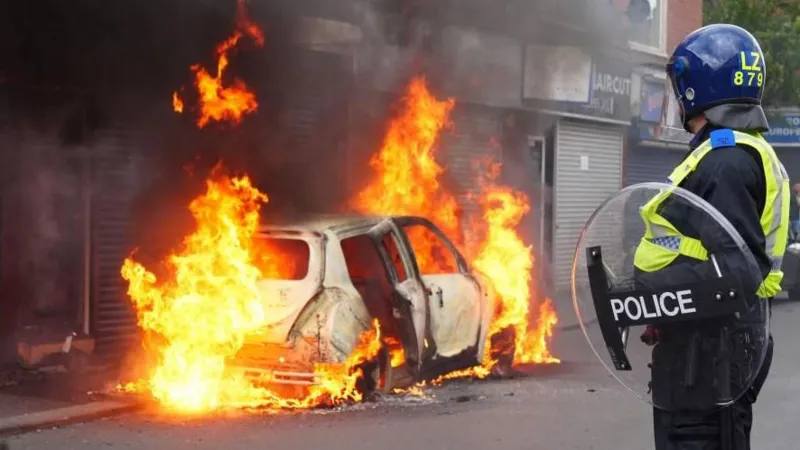The fatal stabbing of three young girls at a dance class in the seaside town of Southport, in the north of England, has been followed by the worst unrest the UK has seen in more than a decade.
The violence, in towns and cities across England and in Northern Ireland, has been fuelled by misinformation online, the far-right and anti-immigration sentiment.Why did the killing of children in Southport lead to violence?
On 29 July, Bebe King, six, Elsie Dot Stancombe, seven, and Alice da Silva Aguiar, nine, were killed in a knife attack at a Taylor Swift-themed dance and yoga event. Eight more children and two adults were injured.
Later that day, police said they had arrested a 17-year-old from a village nearby and that they were not treating the incident as terror-related.
Almost immediately after the attack, social media posts falsely speculated that the suspect was an asylum seeker who arrived in the UK on a boat in 2023, with an incorrect name being widely circulated. There were also unfounded rumours that he was Muslim.
In fact, as the BBC and other media outlets reported, the suspect was born in Wales to Rwandan parents.
Police urged the public not to spread “unconfirmed speculation and false information”.
The following evening, more than a thousand people attended a vigil for the victims in Southport. Later on, violence broke out near a local mosque. People threw bricks, bottles and other missiles at the mosque and police, a police van was set alight and 27 officers were taken to hospital.
The disorder was widely condemned. Local MP Patrick Hurley said “thugs” had travelled to the town to use the deaths of three children “for their own political purposes”, while Prime Minister Sir Keir Starmer denounced the “marauding mobs on the streets of Southport”.
Why are there riots in the UK?





Comments are closed for this post.